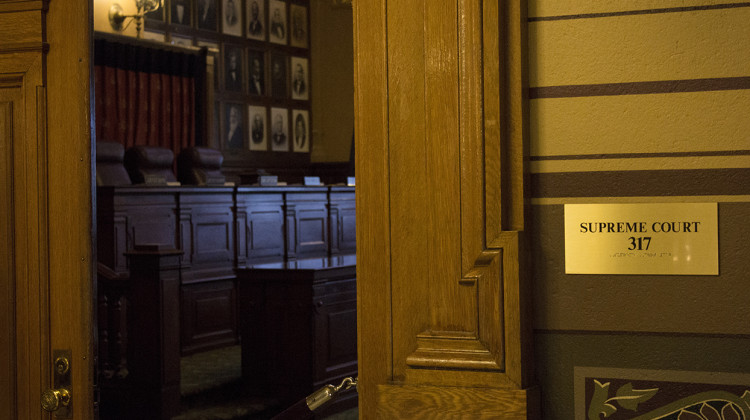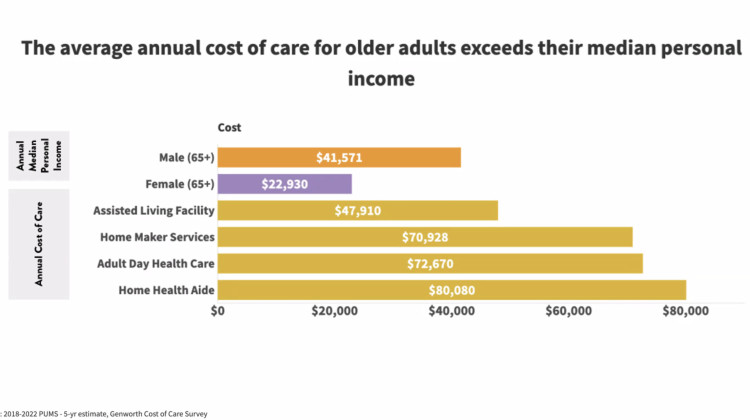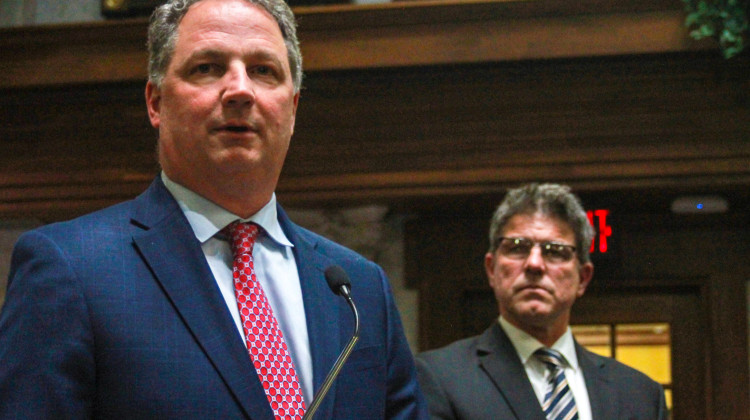
The Indiana Supreme Court established a new precedent that says trial courts can decide, on a case-by-case basis, whether prosecutors must turn over full police reports to defendants.
FILE PHOTO: Peter Balonon-Rosen/IPB NewsThe Indiana Supreme Court this week unanimously overturned a nearly 40-year-old precedent that affects how defendants in court can access police reports.
Prosecutors in Indiana couldn't be forced to turn over a full police report when a defendant’s attorney requests it. That dates back to a state Supreme Court decision from 1985.
The court acknowledged most local prosecutors do turn the police reports over when asked, or at least make them available to view. But some still don’t. And trial courts, bound by state Supreme Court precedent, couldn't require those reports to be shared.
Until now. Justice Steven David wrote that the 1985 ruling no longer applies. He cited improvements in technology as a reason to overturn the decision – for instance, redacting reports before sharing them can now be done with the click of a mouse, rather than manually going through each piece of paper with a marker.
David also wrote that sharing police reports is “largely unproblematic.”
The new ruling said trial courts can now decide, on a case-by-case basis, whether a full police report should be shared with the defendant.
Contact reporter Brandon at bsmith@ipbs.org or follow him on Twitter at @brandonjsmith5.
 DONATE
DONATE








 View More Programs
View More Programs

 Support WFYI. We can't do it without you.
Support WFYI. We can't do it without you.